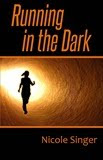A couple of good examples from Harry Potter, since it's genius writing and pretty much everyone's read it:
- when we get snippets of what they're learning about in class, which happens a lot
- all kinds of stuff about quidditch
- details about various characters' love lives
- what Peeves is up to
I could give all sorts of examples, because they're never-ending. The books are full of all sorts of seemingly meaningless things that end up not being meaningless. I'm not talking about things that end up playing a bigger role later, I'm just talking about the stuff that builds characters and the world around them. The thing is, Rowling is genius and she works in all these kinds of things and makes them matter. I don't know how to do it at all.
For a couple of examples that I'm struggling with:
- in my WIP my MC has friends. It's important to me that she have friends. But only her best friend plays a major role. I can't figure out how the heck to involve her other school friends without it coming off as trite and forced.
- in a more specific example, I'm currently working on a hiking scene. I know where I want the scene to go - there's a bunch of happy conflict towards the end. I feel pretty confident about that part. It's getting to that part that's a problem. Because none of it really matters. I don't know how to make it matter. And, well, I don't want to have meaningless dialogue with them talking about the pretty trees.
Anyway, I hope I've explained myself clearly. And I hope some of you nice people out there have some suggestions for me. It seems to me that this is a pretty big deal in writing a book that feels believable, and so I feel like a complete moron every time I run into this wall. I just have this tendency to only want to write the important details.
Sorry for the long post... Any suggestions?
Thanks in advance!



